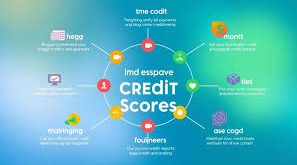What You Need to Know Before Applying for a Mortgage
Buying a home is a major milestone in life, and for most people, it’s one of the biggest financial decisions they’ll ever make. Whether you’re a first-time homebuyer or have bought a property before, applying for a mortgage can be a complex process. Understanding what you need to know before applying for a mortgage can help you navigate the process smoothly and make informed decisions.
In this comprehensive guide, we’ll walk you through the most important factors to consider before applying for a mortgage so that you’re well-prepared to secure the best deal possible.
1. Understand Your Credit Score
Your credit score is one of the most important factors that lenders use to determine your eligibility for a mortgage and the interest rate you will receive. It’s essential to know your credit score before applying because it will affect the mortgage terms you are offered.
Why It Matters:
Better credit scores typically result in lower interest rates, which can save you thousands of dollars over the life of the loan.
Poorer credit scores may result in higher interest rates, or you may struggle to qualify for a mortgage at all.
What You Should Do:
Check your credit score well in advance of applying for a mortgage. You can obtain your credit report for free once a year from the three major credit bureaus (Equifax, Experian, and TransUnion) via AnnualCreditReport.com.
If your score is lower than you’d like, take steps to improve it before applying. This might include paying down credit card balances, disputing errors on your credit report, or making timely payments on any outstanding debts.
2. Save for a Down Payment
A down payment is the amount of money you pay upfront when purchasing a home. It’s a significant factor in your mortgage application, as it reduces the amount you need to borrow.
How Much Do You Need?
Conventional Loans typically require a down payment of 20% of the home’s purchase price, though there are options that allow for a smaller down payment (as low as 3% or 5%).
FHA Loans require a minimum down payment of 3.5%.
VA Loans and USDA Loans may require no down payment at all, depending on your eligibility.
What You Should Do:
Start saving for a down payment as early as possible. The larger your down payment, the lower your loan-to-value ratio (LTV), which can help you secure a better interest rate.
Consider programs like First-Time Homebuyer Grants or other assistance programs that may be available in your area to help with down payment costs.
3. Get Pre-Approved for a Mortgage
A pre-approval is a process where a lender reviews your financial situation and determines how much they are willing to lend you. Getting pre-approved before you start shopping for homes shows sellers that you are a serious buyer and can help streamline the buying process.
Why It’s Important:
A pre-approval gives you a better idea of how much house you can afford.
It can help you narrow down your home search to properties within your budget.
Sellers are more likely to take your offer seriously if you have a pre-approval letter.
What You Should Do:
Gather your financial documents, including pay stubs, tax returns, bank statements, and proof of any other income.
Shop around and get pre-approved by multiple lenders to compare interest rates and terms. This can give you a better idea of the loan options available to you.
4. Understand the Types of Mortgages
There are several different types of mortgage loans, each with its own pros and cons. It’s important to understand the differences so you can choose the one that best fits your financial situation.
Common Types of Mortgages:
Fixed-Rate Mortgage: The interest rate remains the same for the entire term of the loan. This is ideal if you want predictability in your monthly payments and plan to stay in the home for a long time.
Adjustable-Rate Mortgage (ARM): The interest rate is fixed for an initial period (usually 5, 7, or 10 years), after which it adjusts periodically based on market conditions. ARMs can offer lower initial rates, but the rates can increase over time.
FHA Loan: A government-backed loan that allows for a lower down payment and more flexible credit requirements. Ideal for first-time homebuyers or those with lower credit scores.
VA Loan: Available to current and former military service members and, in some cases, their families. VA loans often require no down payment or private mortgage insurance (PMI).
Jumbo Loan: A loan for homes that exceed the conforming loan limits set by the Federal Housing Finance Agency (FHFA). These loans typically require a larger down payment and higher credit score.
What You Should Do:
Research each type of mortgage and choose one that aligns with your financial situation and homeownership goals. Consider speaking with a mortgage advisor to better understand your options.
5. Factor in Closing Costs
Closing costs are the fees associated with finalizing your mortgage and transferring ownership of the property. These costs can add up quickly, and it’s important to budget for them.
Common Closing Costs:
Loan Origination Fees: The cost to process your loan application.
Appraisal Fees: The cost of assessing the value of the home.
Title Insurance: Protects the lender in case there are issues with the title of the property.
Inspection Fees: Costs associated with having the property inspected for any potential issues.
Attorney Fees: Some states require an attorney to oversee the closing process.
What You Should Do:
Plan for closing costs to be anywhere from 2% to 5% of the purchase price of the home.
Ask your lender for a breakdown of closing costs early on so you can budget accordingly. Some lenders offer programs that may allow you to roll the closing costs into the loan amount.
6. Know Your Debt-to-Income Ratio (DTI)
Your debt-to-income (DTI) ratio is an important factor that lenders use to evaluate your ability to repay a mortgage. It’s the percentage of your monthly income that goes toward paying off debts, including credit cards, student loans, car payments, and other loans.
What’s a Good DTI Ratio?
Generally, lenders prefer a DTI ratio of 36% or lower, although some may go up to 43% or higher, depending on other factors.
The lower your DTI, the more favorably lenders will view your application.
What You Should Do:
Calculate your DTI ratio by adding up all your monthly debt payments and dividing them by your gross monthly income.
If your DTI ratio is high, consider paying down debt before applying for a mortgage to increase your chances of approval.
7. Understand the Total Cost of Homeownership
The monthly mortgage payment is just one part of owning a home. It’s important to consider all of the costs involved in homeownership.
Additional Costs:
Property Taxes: These can vary significantly depending on your location.
Homeowners Insurance: Lenders typically require homeowners insurance to protect the property.
Private Mortgage Insurance (PMI): If your down payment is less than 20%, you may need to pay for PMI, which protects the lender in case you default on the loan.
Maintenance and Repairs: Owning a home comes with ongoing maintenance costs.
What You Should Do:
Create a budget that includes not just your mortgage payment but also property taxes, insurance, and maintenance costs. This will help you better understand the true cost of homeownership.
8. Shop Around for the Best Mortgage Rates
Not all mortgage lenders offer the same terms, and even a small difference in interest rates can make a big difference over the life of the loan. Shopping around can help you find the best deal.
What You Should Do:
Compare mortgage offers from multiple lenders, including banks, credit unions, and online lenders.
Look at the interest rates, but also consider other factors such as loan terms, fees, and customer service.
Don’t hesitate to negotiate with lenders to see if they can offer you better terms.
9. Be Prepared for a Home Inspection
A home inspection is typically a required step before finalizing a mortgage. It’s essential to understand that this inspection is an opportunity to identify any issues with the property before you make a commitment.
What to Expect:
The inspector will check the home for potential problems, such as structural issues, plumbing, electrical problems, or the condition of the roof.
If significant issues are discovered, you may be able to negotiate with the seller to either lower the price or make repairs before finalizing the sale.
What You Should Do:
Hire a reputable home inspector and attend the inspection if possible. Use the results of the inspection to make an informed decision about whether to proceed with the purchase.
10. Be Ready to Commit
A mortgage is a long-term commitment, often lasting 15 to 30 years. Before applying, take the time to evaluate whether you’re ready for the responsibilities of homeownership.
What You Should Do:
Assess your long-term financial stability and whether you’re ready to take on the financial and emotional responsibilities of owning a home.
Consider your job stability, family plans, and whether the home aligns with your future goals.
Conclusion
Applying for a mortgage can be a daunting process, but with the right preparation, it can be a smooth and rewarding experience. By understanding your credit score, saving for a down payment, getting pre-approved, and knowing the different types of mortgages available, you’ll be in a better position to secure the best deal possible. Additionally, understanding all of the costs associated with homeownership and being prepared for the responsibilities of owning a home will help you make a well-informed decision.
Taking the time to plan and educate yourself before applying for a mortgage will ensure that you’re making the best decision for your financial future and your family’s needs.


